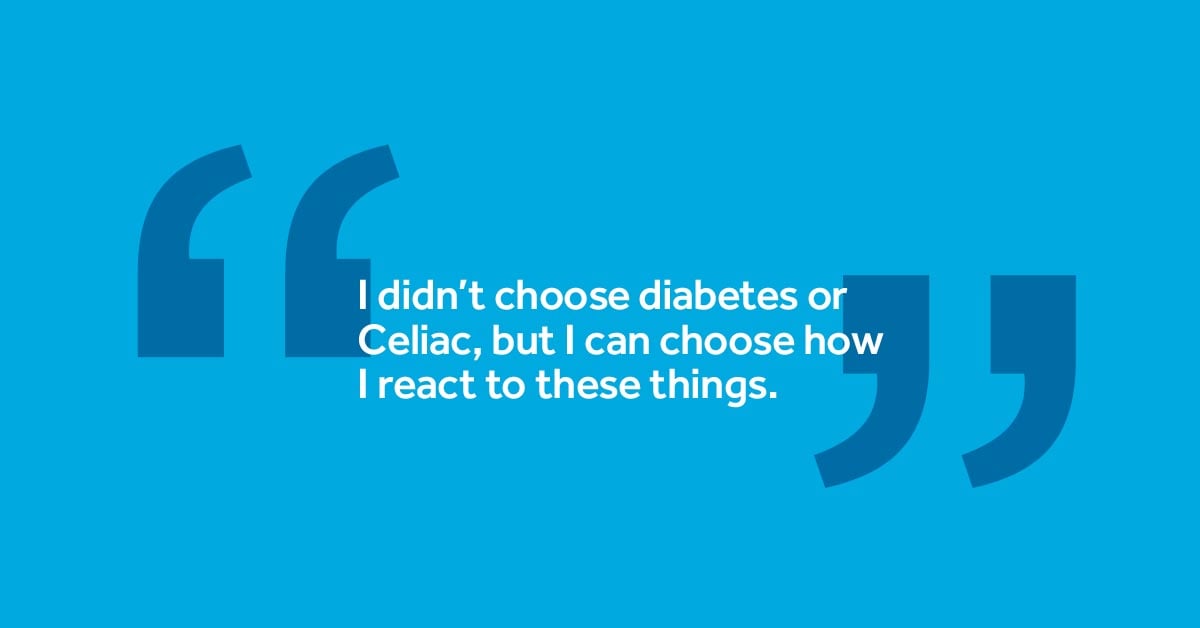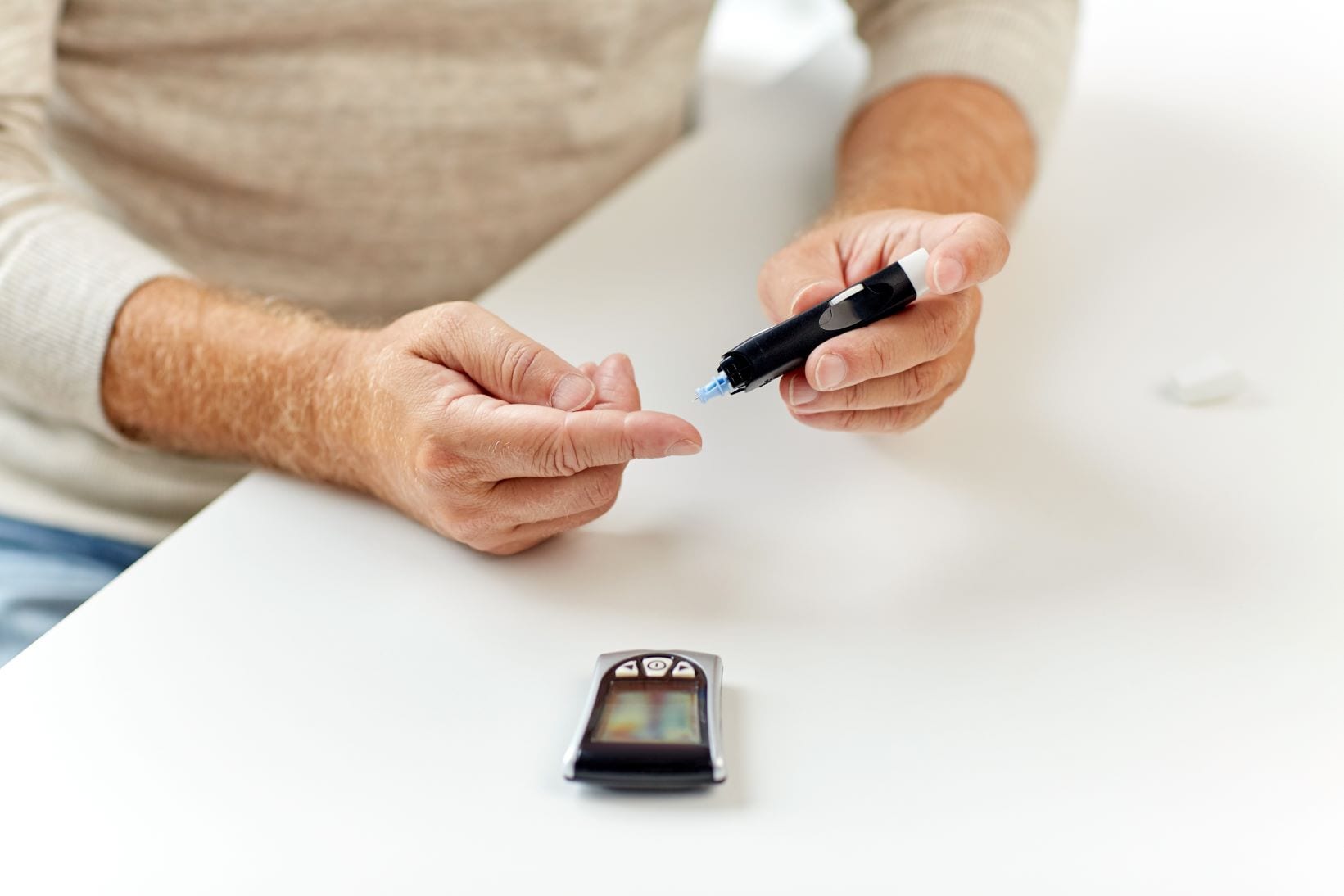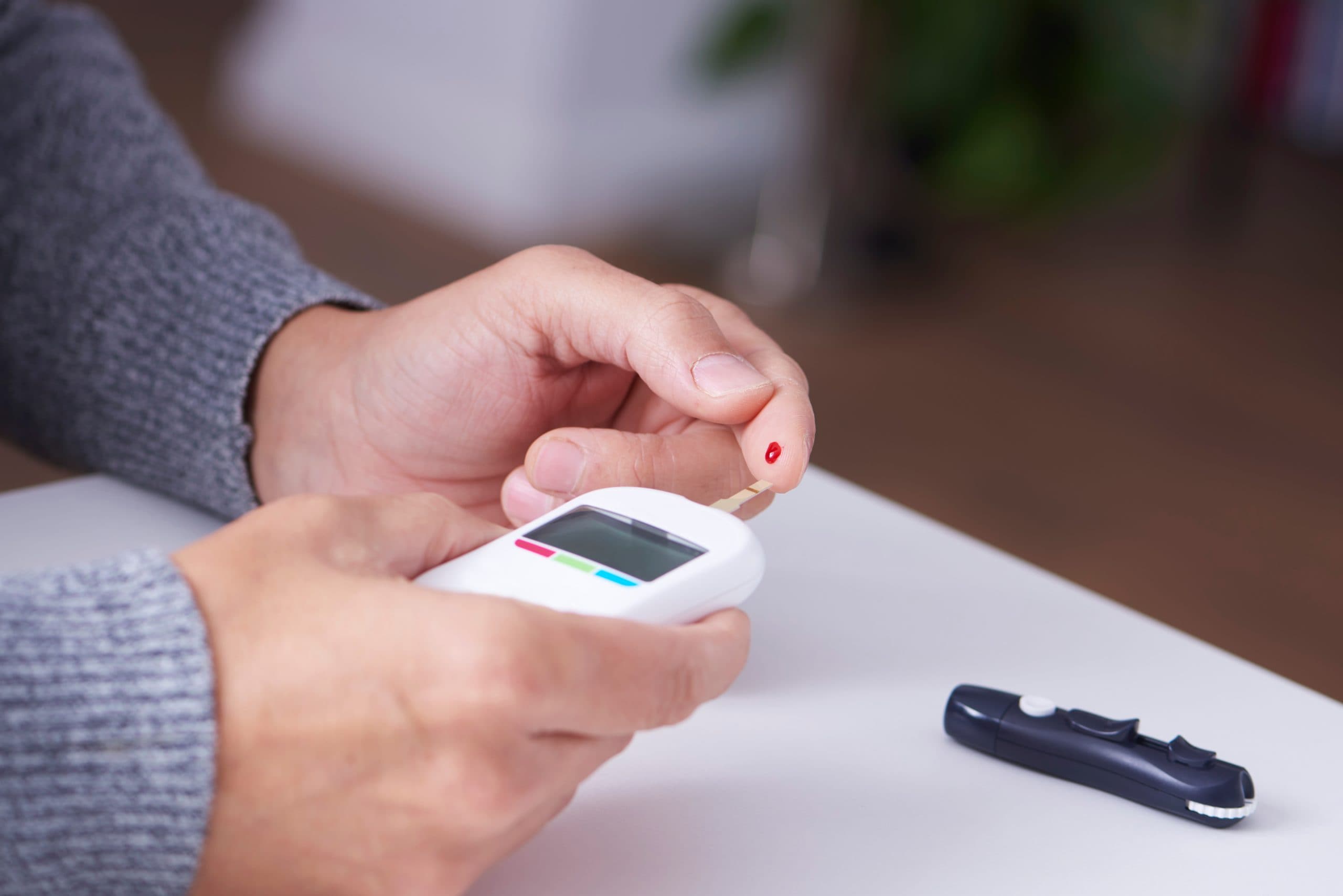5 things I’ve learned living with diabetes and Celiac disease

Adjusting to living with diabetes can be difficult. Especially when it comes to what you’re eating and how the foods you eat might impact your glucose levels. Add to that Celiac disease and food options impact your day-to-day even more. Today, we asked MiniMed Ambassador, Cara, to share what life has been like since she was diagnosed with Celiac disease.
Living with type 1 diabetes is a process. It’s something that I have known for most of my life. In fact, I recently celebrated 32 years of living with diabetes—I was diagnosed months before my fifth birthday.  My memories of life before diabetes are vague, and sometimes I believe that’s a blessing. I’ve taken joy in my life in saying that I’m perfectly healthy, except for the diabetes. That changed a little over two years ago. I went in for a normal check up with my general practitioner and mentioned I’d had some unusual exhaustion. After a quick test, I discovered that my iron was extremely low. Fast forward a few months and after a round of iron pills, my doctor suggested that I be tested for Celiac disease. My iron was still low, and that wasn’t normal.
My memories of life before diabetes are vague, and sometimes I believe that’s a blessing. I’ve taken joy in my life in saying that I’m perfectly healthy, except for the diabetes. That changed a little over two years ago. I went in for a normal check up with my general practitioner and mentioned I’d had some unusual exhaustion. After a quick test, I discovered that my iron was extremely low. Fast forward a few months and after a round of iron pills, my doctor suggested that I be tested for Celiac disease. My iron was still low, and that wasn’t normal.
I’ve heard adults newly diagnosed with type 1 diabetes say they felt like their bodies had betrayed them. I never had that because I’ve not really known a life without it. But when my blood test came back with positive anti-bodies for Celiac disease, I felt betrayed by my body.
I went through a mourning period and then started to do my research. I was lucky enough to discover the Diabetes Online Community, or DOC, over ten years ago. Being a part of this community has led me to support, friends, and knowledge that I wouldn’t have had otherwise. I knew there had to be something like that out there for those with Celiac disease as well.
This process helped me so much. But in so many ways, diabetes and Celiac disease are diametrically opposed. While both are auto-immune diseases, and both are very much about food, they often work against each other. Diabetes has been shown to “behave” better when I eat low carb (though I don’t always do that). Gluten free foods that aren’t naturally gluten free are often higher in carbohydrates, higher in fat and higher in sugar. These things work against what I try to do with my diabetes management.
 Diabetes is all about numbers. With my Medtronic CGM, I get a number every 5 minutes! It’s about A1c numbers, glucose readings, counting carbs, and calculating insulin dosages. Celiac is not. While there are periodic blood tests in a doctor’s office for the anti-bodies for Celiac (not a good thing), there’s no immediate knowledge of if you are doing things “right.”
Diabetes is all about numbers. With my Medtronic CGM, I get a number every 5 minutes! It’s about A1c numbers, glucose readings, counting carbs, and calculating insulin dosages. Celiac is not. While there are periodic blood tests in a doctor’s office for the anti-bodies for Celiac (not a good thing), there’s no immediate knowledge of if you are doing things “right.”
I’m also one of many people who don’t have a noticeable reaction to gluten, so I don’t know if I’ve accidently eaten gluten. It makes it that much harder to know if I’m doing all I can to keep myself healthy.
During my first year or so, I’ve had to make some concessions and adjustments. My diabetes care has suffered at times, but I’m slowly finding a way to meld the two conditions. Some things I’ve learned? Well, here’s a list (not a complete list, but a list).
- Sometimes, you must give a little.
- I’m still healthy, and I can continue to be so. I just have to work a little bit harder.
- Diabetes guilt (a.k.a. guilt over how our condition affects those around us) is a thing, but so is Celiac guilt. I’m learning that my health is more important that inconveniencing someone because I may have to adjust our location to eat dinner.
- I’m learning that it’s better to turn down food (with the fear of offending someone), than to have my body suffer because I was trying to be polite.
- There are just as many myths about Celiac as there are about diabetes.
The biggest thing I’ve learned is that I didn’t choose diabetes or Celiac, but I can choose how I react to these things. I do get to choose how I play the hand I’ve been dealt. I choose to be healthy. I choose to advocate. Sure, there are bad days sometimes, but no matter the health condition, tomorrow is a new day and you can start all over.
*Cara was provided product in exchange for her own thoughts and opinions. Individual results may vary.
*The patient testimonial above relates an account of an individual’s response to treatment. The account is genuine, typical and documented. However, this patient’s response does not provide any indication, guide, warranty or guarantee as to the response other people may have to the treatment. The response other individuals have to the treatment could be different. Responses to the treatment can and do vary. Not every response is the same. Please talk to your doctor about your condition and the risks and benefits of these technologies.
IMPORTANT SAFETY INFORMATION
MINIMED 670G SYSTEM
The Medtronic MiniMed™ 670G system is intended for continuous delivery of basal insulin (at user selectable rates) and administration of insulin boluses (in user selectable amounts) for the management of type 1 diabetes mellitus in persons, seven years of age and older, requiring insulin as well as for the continuous monitoring and trending of glucose levels in the fluid under the skin. The MiniMed™ 670G system includes SmartGuard™ technology, which can be programmed to automatically adjust delivery of basal insulin based on Continuous Glucose Monitor sensor glucose values and can suspend delivery of insulin when the sensor glucose value falls below or is predicted to fall below predefined threshold values. The system requires a prescription.
The Guardian™ Sensor (3) glucose values are not intended to be used directly for making therapy adjustments, but rather to provide an indication of when a fingerstick may be required. A confirmatory finger stick test via the CONTOUR®NEXT LINK 2.4 blood glucose meter is required prior to making adjustments to diabetes therapy. All therapy adjustments should be based on measurements obtained using the CONTOUR®NEXT LINK 2.4 blood glucose meter and not on values provided by the Guardian™ Sensor (3). Always check the pump display to ensure the glucose result shown agrees with the glucose results shown on the CONTOUR®NEXT LINK 2.4 blood glucose meter. Do not calibrate your CGM device or calculate a bolus using a blood glucose meter result taken from an Alternative Site (palm) or from a control solution test. It is not recommended to calibrate your CGM device when sensor or blood glucose values are changing rapidly, e.g., following a meal or physical exercise. If a control solution test is out of range, please note that the result may be transmitted to your pump when in the “Always” send mode.
WARNING: Medtronic performed an evaluation of the MiniMed™ 670G system and determined that it may not be safe for use in children under the age of 7 because of the way that the system is designed and the daily insulin requirements. Therefore this device should not be used in anyone under the age of 7 years old. This device should also not be used in patients who require less than a total daily insulin dose of 8 units per day because the device requires a minimum of 8 units per day to operate safely. |



